He Won’t Say Much. That Doesn’t Mean He’s Fine.
A heartfelt personal essay about how silence, illness, and vulnerability shaped one man’s understanding of real strength.
Editor’s Note:
At AboutHer Mag, we strive to create space for stories that push past stereotypes. This deeply personal piece by Nikhil offers a rare, honest look at how emotional suppression—often expected of men—can take a toll on both body and mind. Through his story, we’re reminded that mental health is a human need, not a gendered one, and that strength often begins with saying what’s hard to say.
If you like the strong, silent type, just know he may be holding back more pain than he will ever show.
I’m not a mental health professional or a wellness coach. Just another human being shaped by his environment and times. Like many men, I spent years doing what seemed “normal”: pushing through, staying busy and avoiding talking about feelings.
Until it stopped working.
A few years ago, I went through a serious illness. But what challenged me most wasn’t the physical symptoms; it was the emotional weight my ill health had been putting on me. Eventually, my body said, “Enough.” I ended up in a wheelchair, not because of the illness itself, but because of what was going on inside of me. I genuinely believed it when my mind said I couldn’t walk.
That moment forced me to confront my mental health. It made me realise how emotional well-being, especially for men, is one of the most ignored aspects of life.
If you are a man or you love one, you’ve probably seen it, too. There is pressure to stay strong, to keep it together, to be “low maintenance.” We’re told our job is to hold the fort, not fall apart. And when we do break down, we’re expected to patch ourselves up quietly.
Also Read: Taking Care of Your Mental Health- Simple Tools and Techniques for a Calmer Mind
But emotional wounds don’t vanish just because we pretend they’re not there. They show up, often quietly, in our bodies, our relationships and our presence. And for many men, these emotions are never acknowledged let alone processed.
Here’s the irony: emotions are part of being human. They’re not gendered. So why are men told to deal with them differently?
We often imagine someone struggling emotionally as being visibly upset or openly talking. But many men express it differently through irritability, withdrawal, over-functioning, shutdown or pushing themselves endlessly. Substance abuse and even suicide are darker expressions of this pain. Not because men don’t feel, but because they were never taught how to express what they do.
You cannot express what you don’t understand. Most men don’t even know what they’re feeling because they were taught that certain emotions should not exist.
Sadness. Fear. Vulnerability. Helplessness.
These were never part of the emotional vocabulary handed to them. So they suppress what they can’t name. And even when they do feel something deeply, they don’t know how to talk about it. Expression isn’t automatic. It’s a skill. And like any skill, it must be taught, encouraged and practiced. But for most men, it never was.
My story isn’t unique. I’ve heard too many others’ pain ignored, feelings buried, and help never sought—until the body or the life itself begins to unravel.
This isn’t about sympathy or painting men as victims. It’s about being honest. Because without honesty, nothing changes.
Even now, mental health is seen as a “soft” issue, something optional. But emotional well-being isn’t a luxury. It’s foundational. And when it’s fragile, everything else is at risk.
Change won’t happen overnight. We’re unlearning generations of conditioning. For too long, strength has been defined by silence and stoicism. But we can begin now:
- We can pay attention
- We can read the signs
- We can stop expecting people to say the words when their behaviour is showing us everything
Those signs are all around us:
- That friend who’s stopped showing up
- That father who is always “fine.”
- That partner who jokes through the hard stuff
This is often how emotional struggle looks in men; it is not loud or dramatic but quiet and subtle. And if we’re willing to notice, we’ll see it.
“The emotions you don’t express turn into stress and can have long-term effects on your body and life.”
I lived this truth.
This is why we need to make it okay for men to talk, not with judgment or suspicion but with openness, empathy, and patience.
Kya hua?
Kuch nahi!
How often have you had this conversation with a man?
Though we say, “You can talk to me anytime,” but do we mean it? Vulnerability isn’t familiar territory for most men. When it does show up, it’s layered, uncertain, and often messy. And if it’s dismissed even once, it may never show up again.
The good news is that things are changing. Slowly, yes, but they are. More men are going to therapy, more conversations are happening, and more boys are being raised with emotional space. But we’re not there yet.
Also Read: 10 Truths About Corporate Loyalty and Layoffs- What They Don’t Tell You Until It’s Too Late
In the meantime, we all have work to do: to listen more, assume less, and make space for the full range of human emotion regardless of who’s feeling it.
Read the signs. Understand the silence. Hold the space.
And to every man reading this, remember:
- You are allowed to feel
- You are allowed to struggle
- You are allowed not to have it all figured out
Asking for help? That’s not a weakness. That’s wisdom. Real strength isn’t holding it all in. It’s knowing when to let it out.
Let’s begin where we are: in our homes, workplaces, and friendships. Let’s make it normal to ask, “How are you really doing?” even if the answer is uncomfortable. Let’s remind the men around us that they don’t have to carry it all alone.
Because feeling doesn’t make you less strong; it only makes you human.
Share This On Social
One Comment
Leave A Comment
![Sangeeta-Relan-AH-525×410[1]](https://slategray-flamingo-696901.hostingersite.com/wp-content/uploads/2024/06/Sangeeta-Relan-AH-525x4101-1.jpeg)
I’m Sangeeta Relan—an educator, writer, podcaster, researcher, and the founder of AboutHer. With over 30 years of experience teaching at the university level, I’ve also journeyed through life as a corporate wife, a mother, and now, a storyteller.
Recent Posts

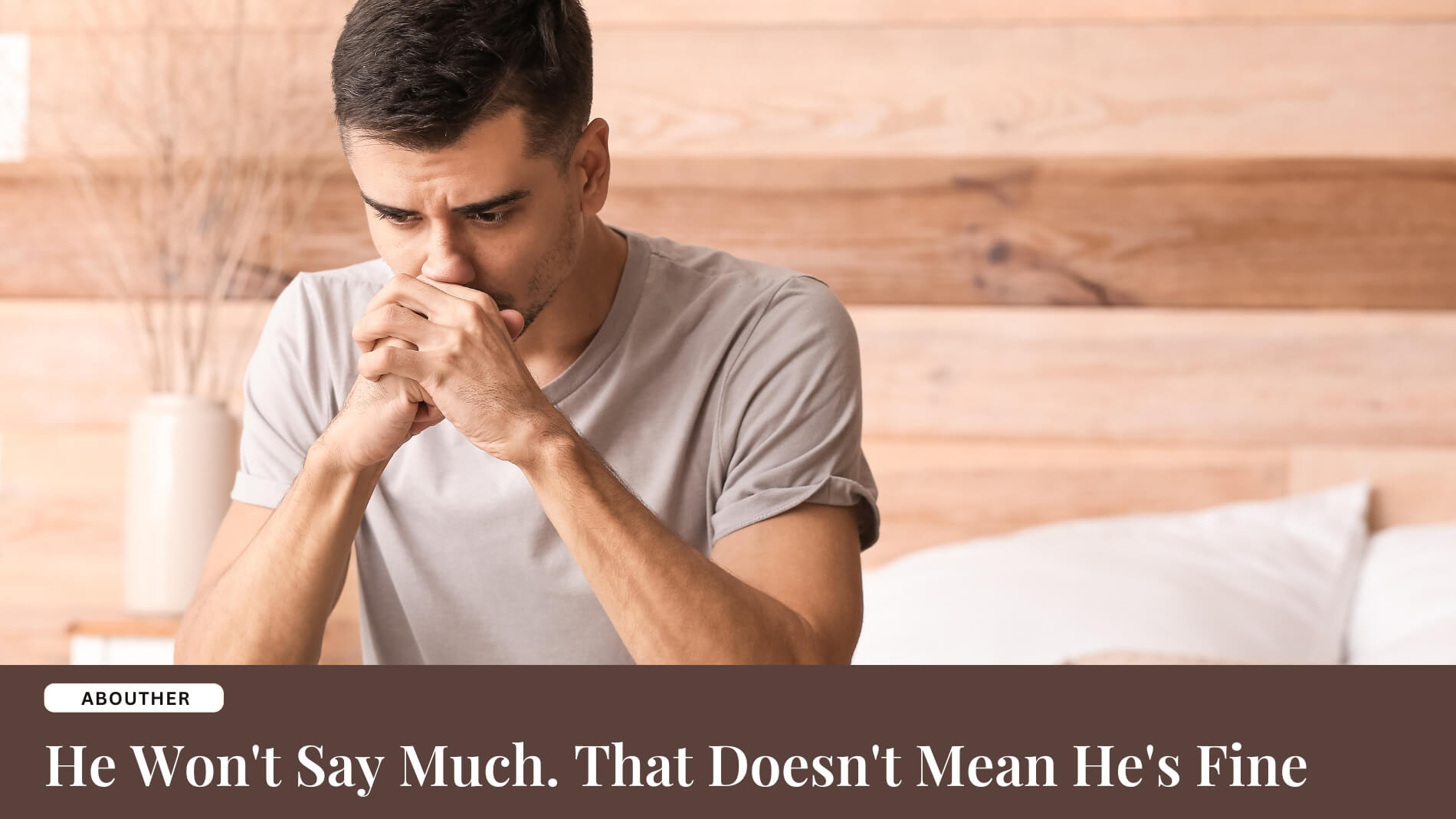

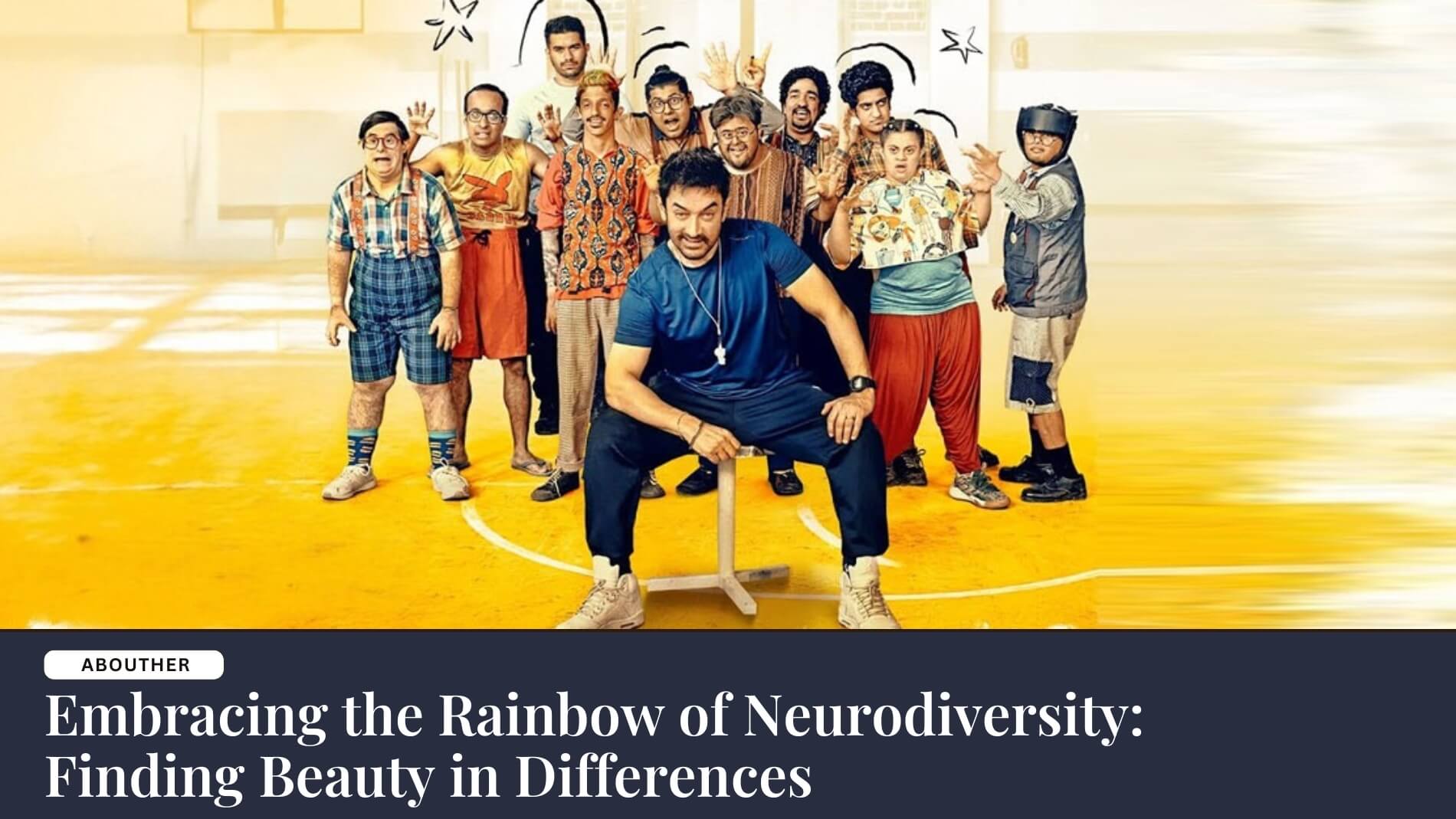

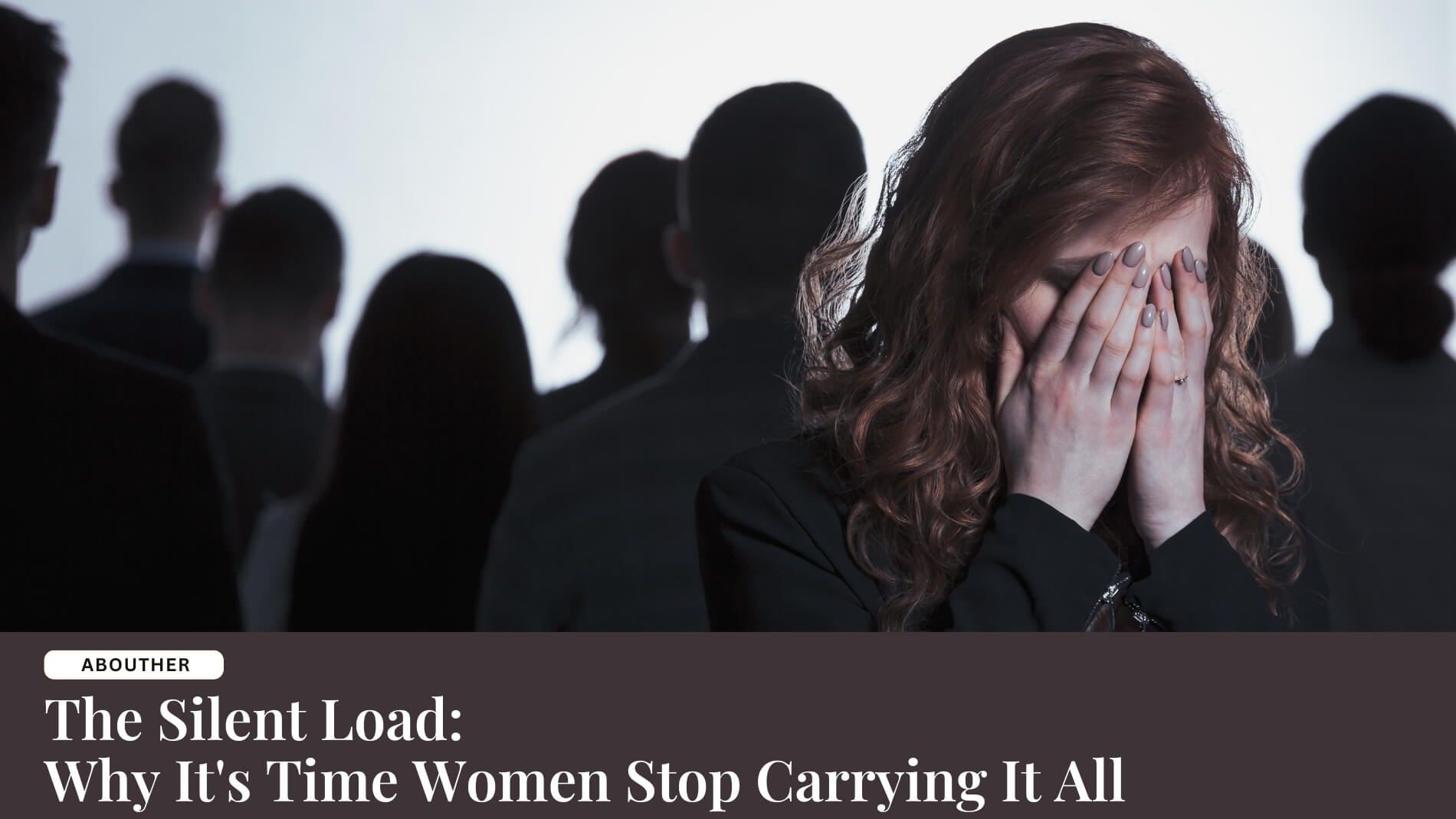
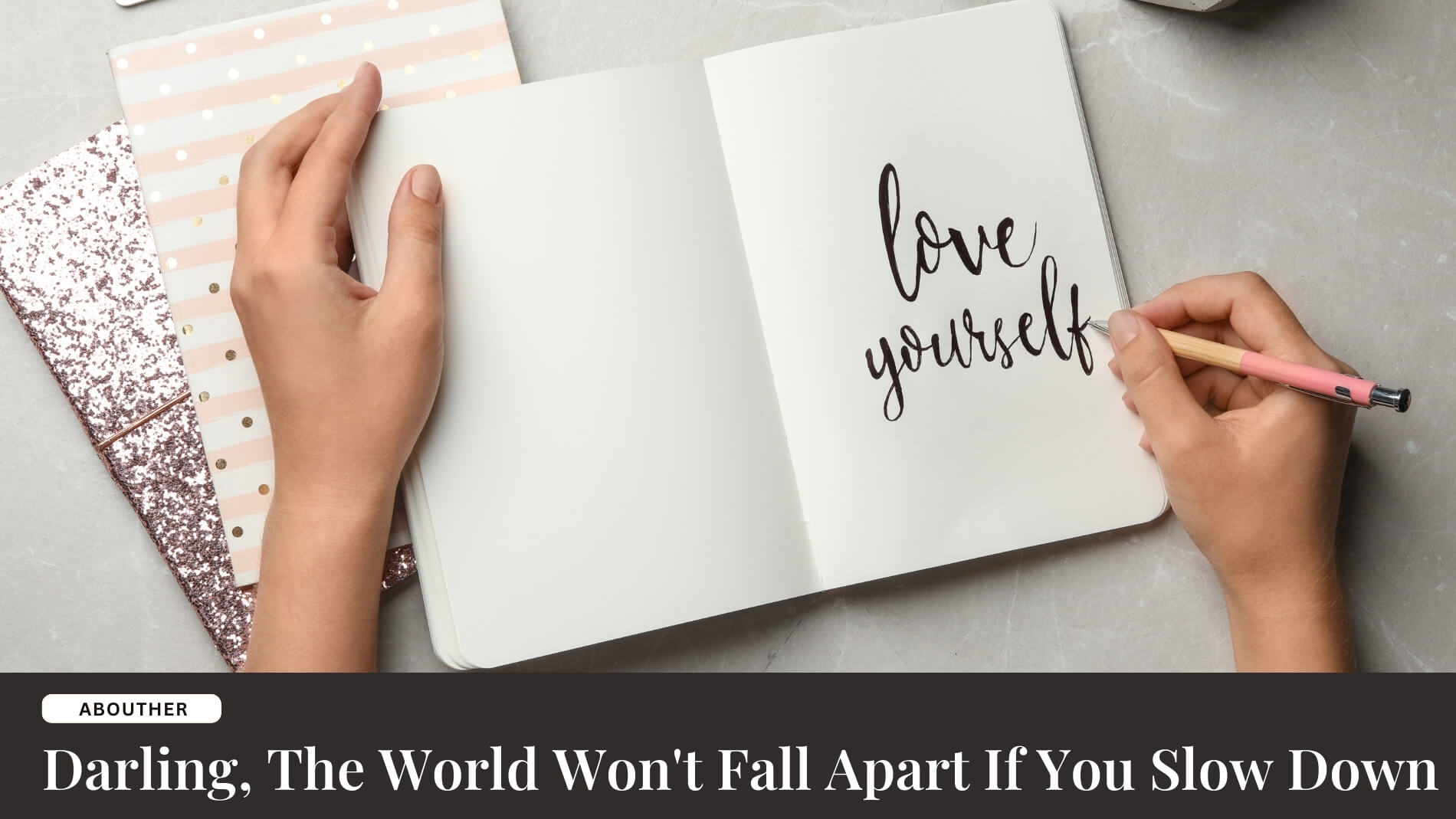


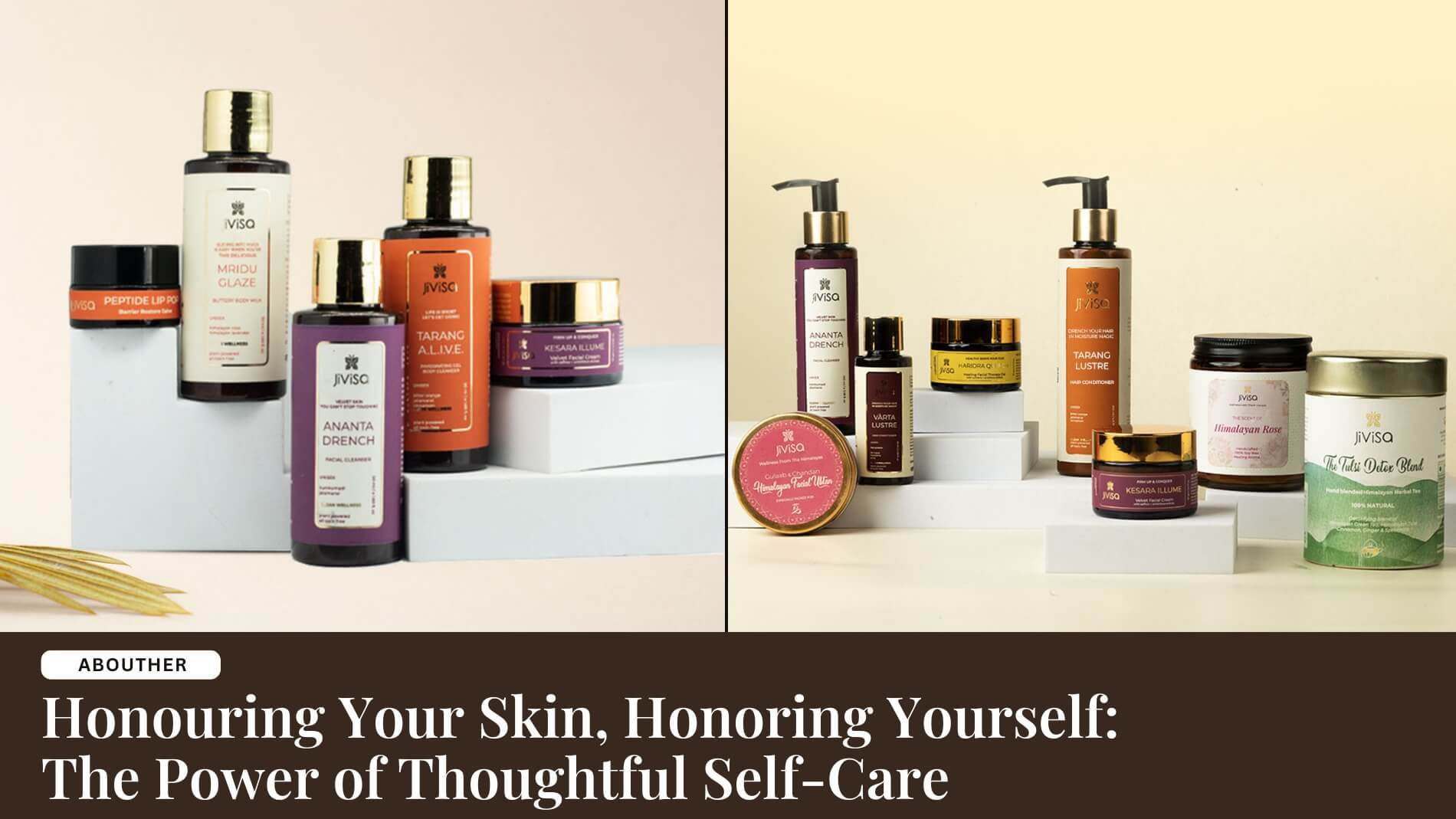
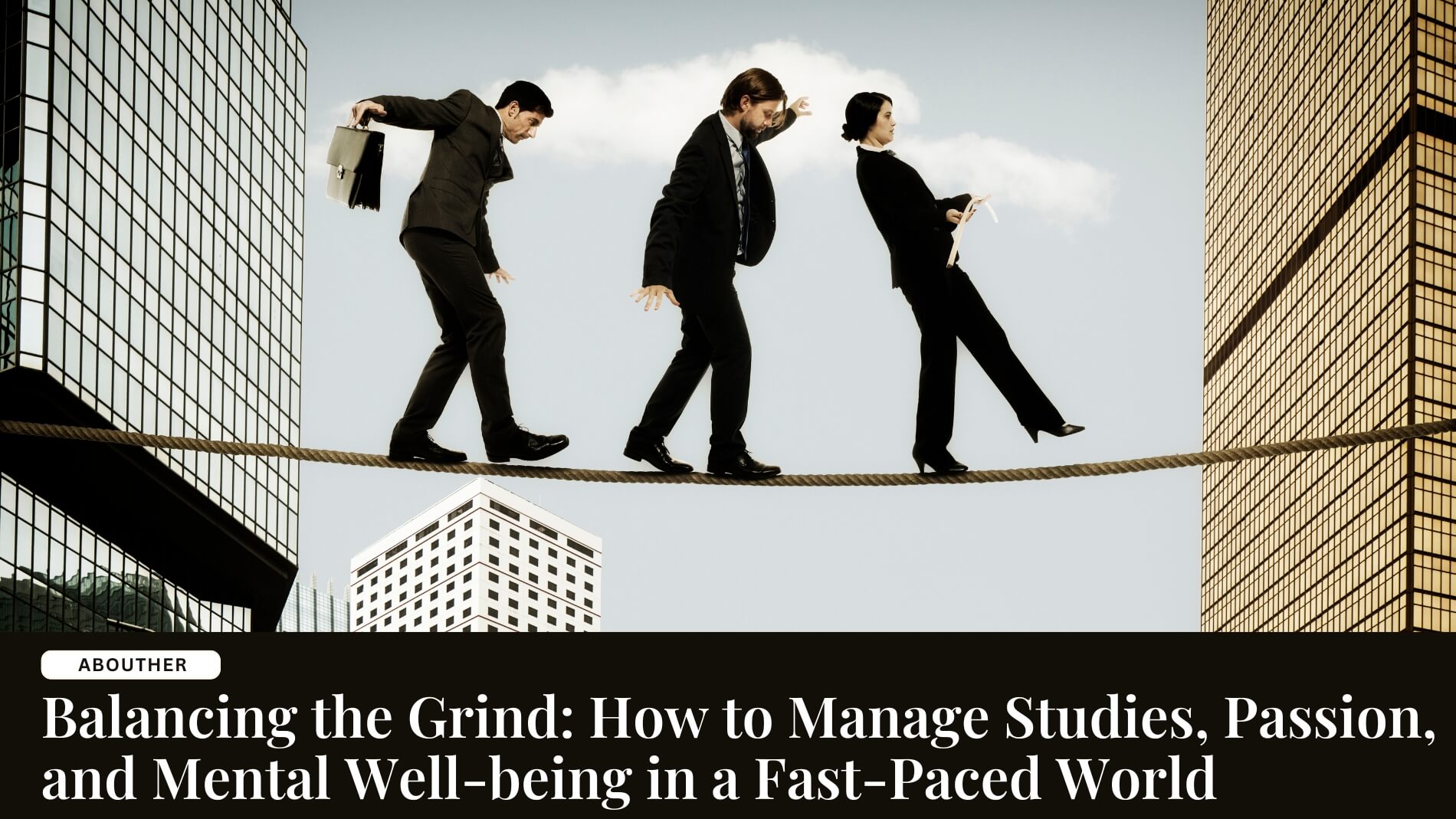
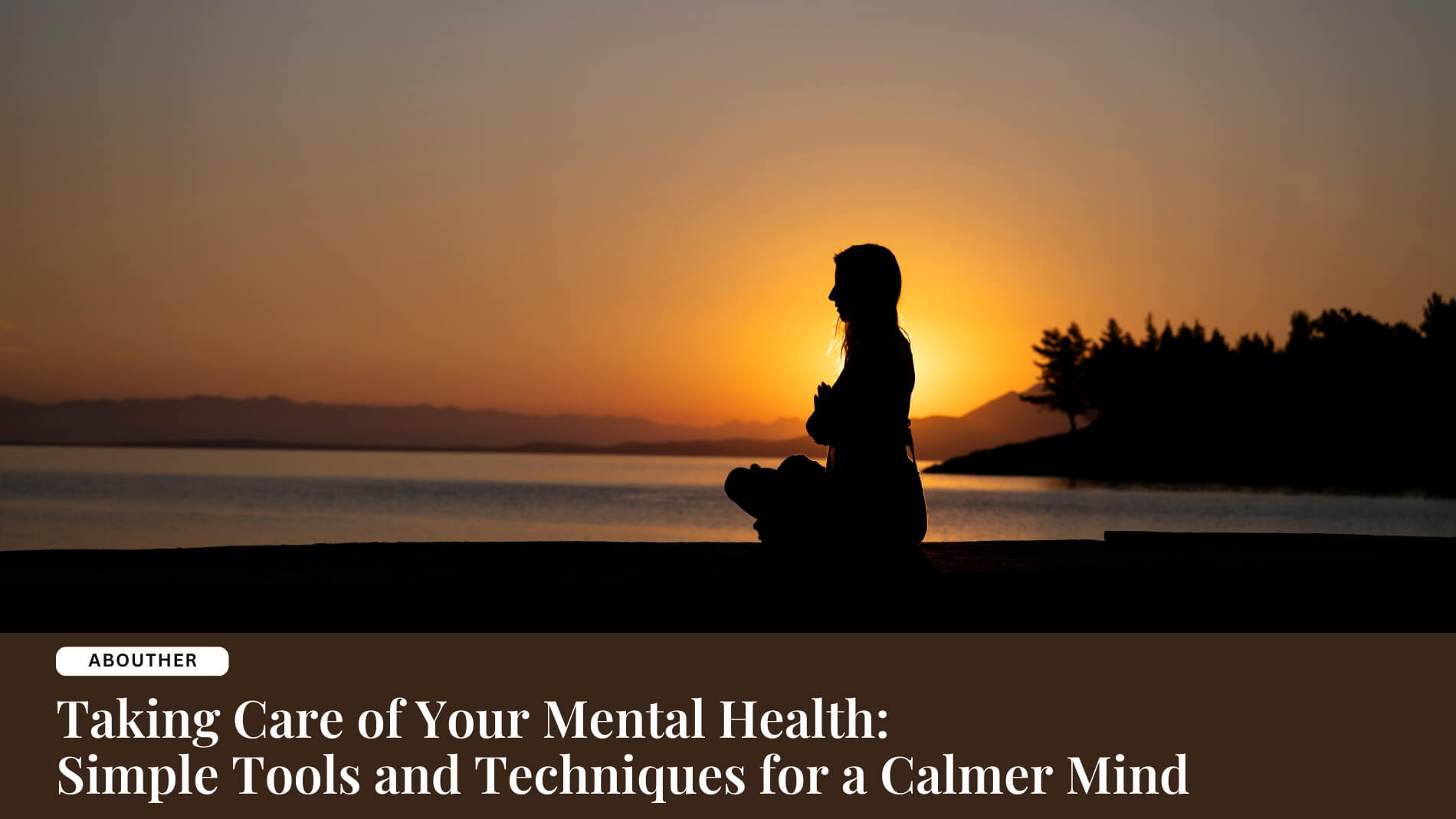

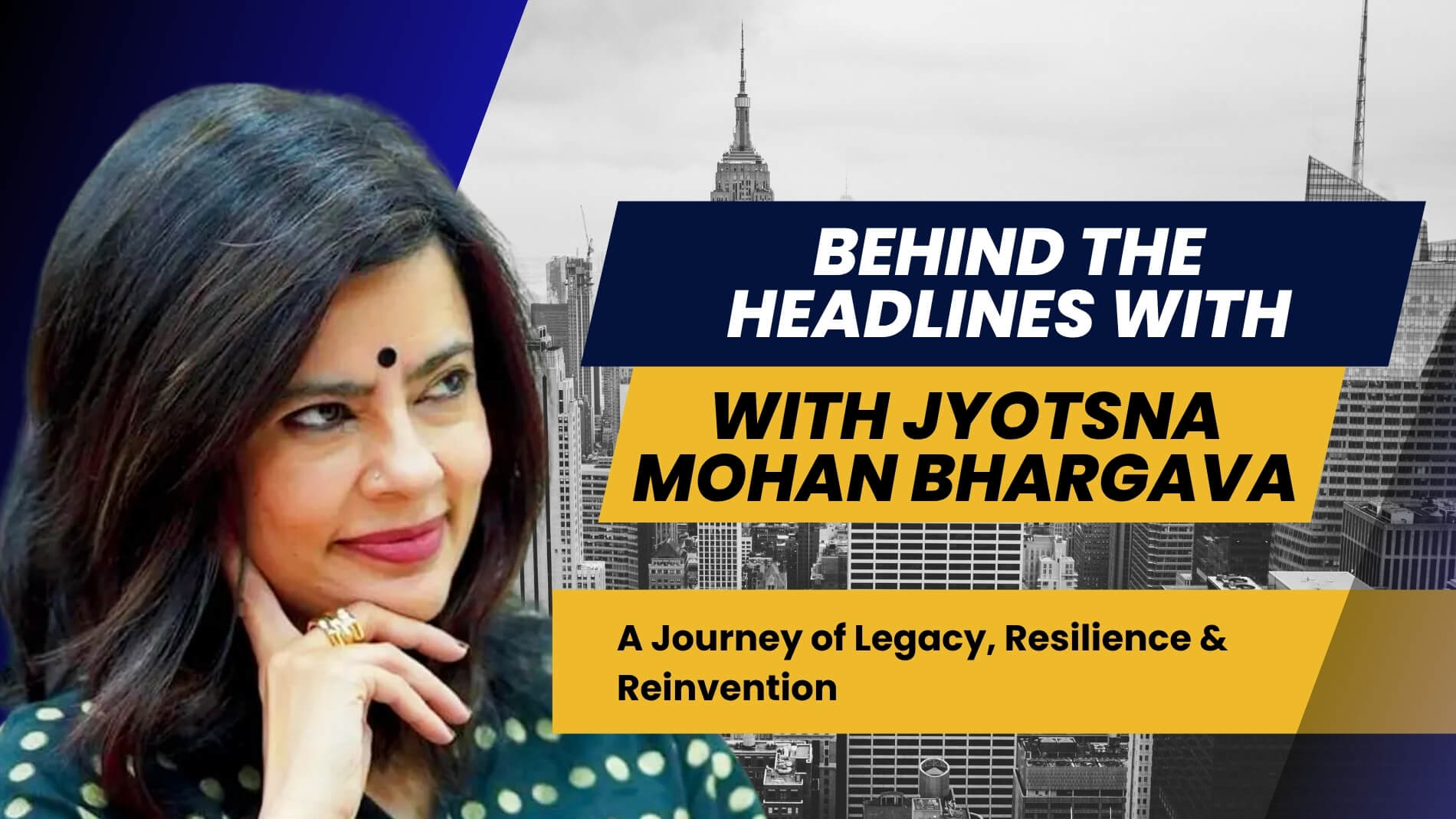

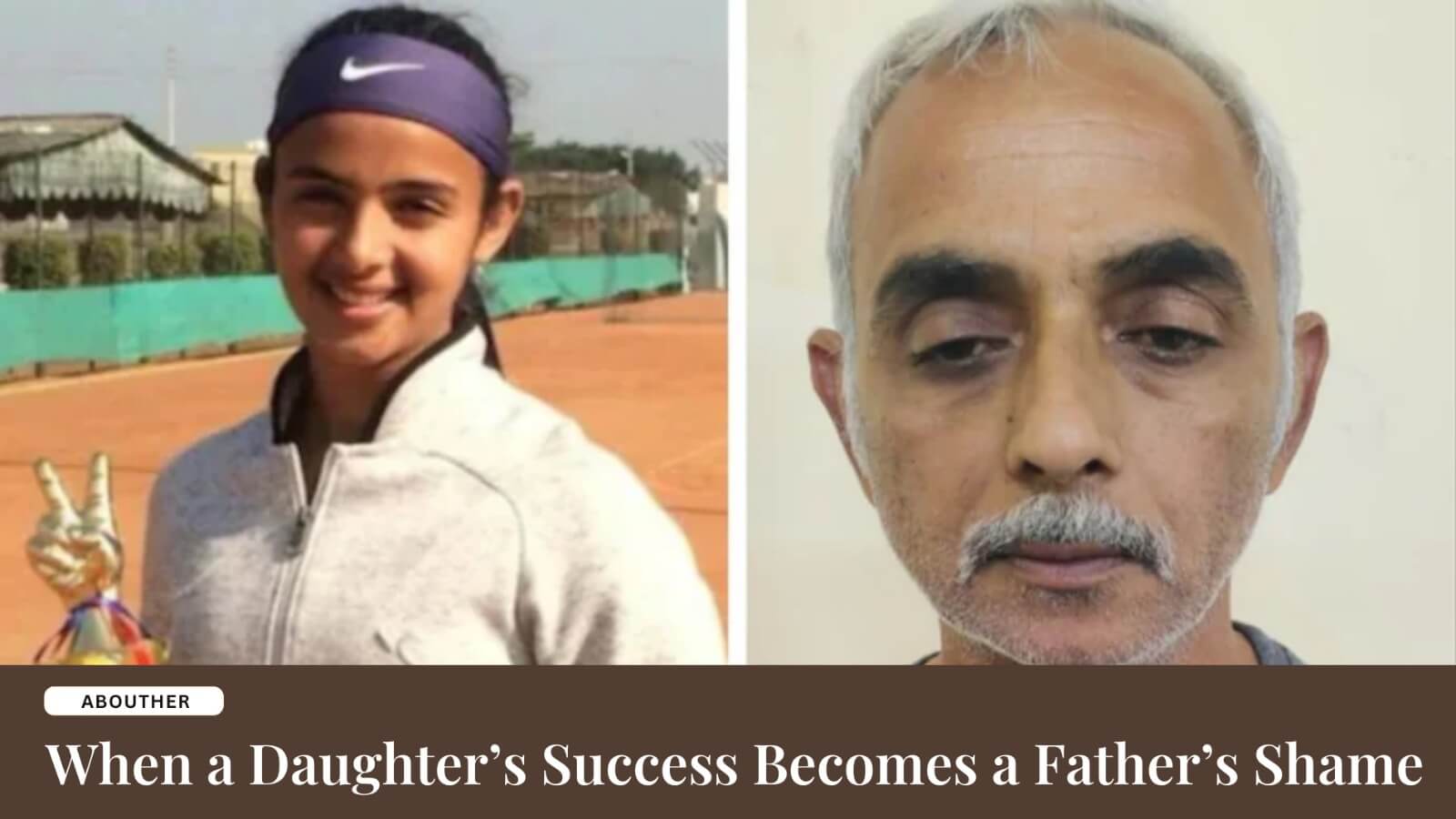
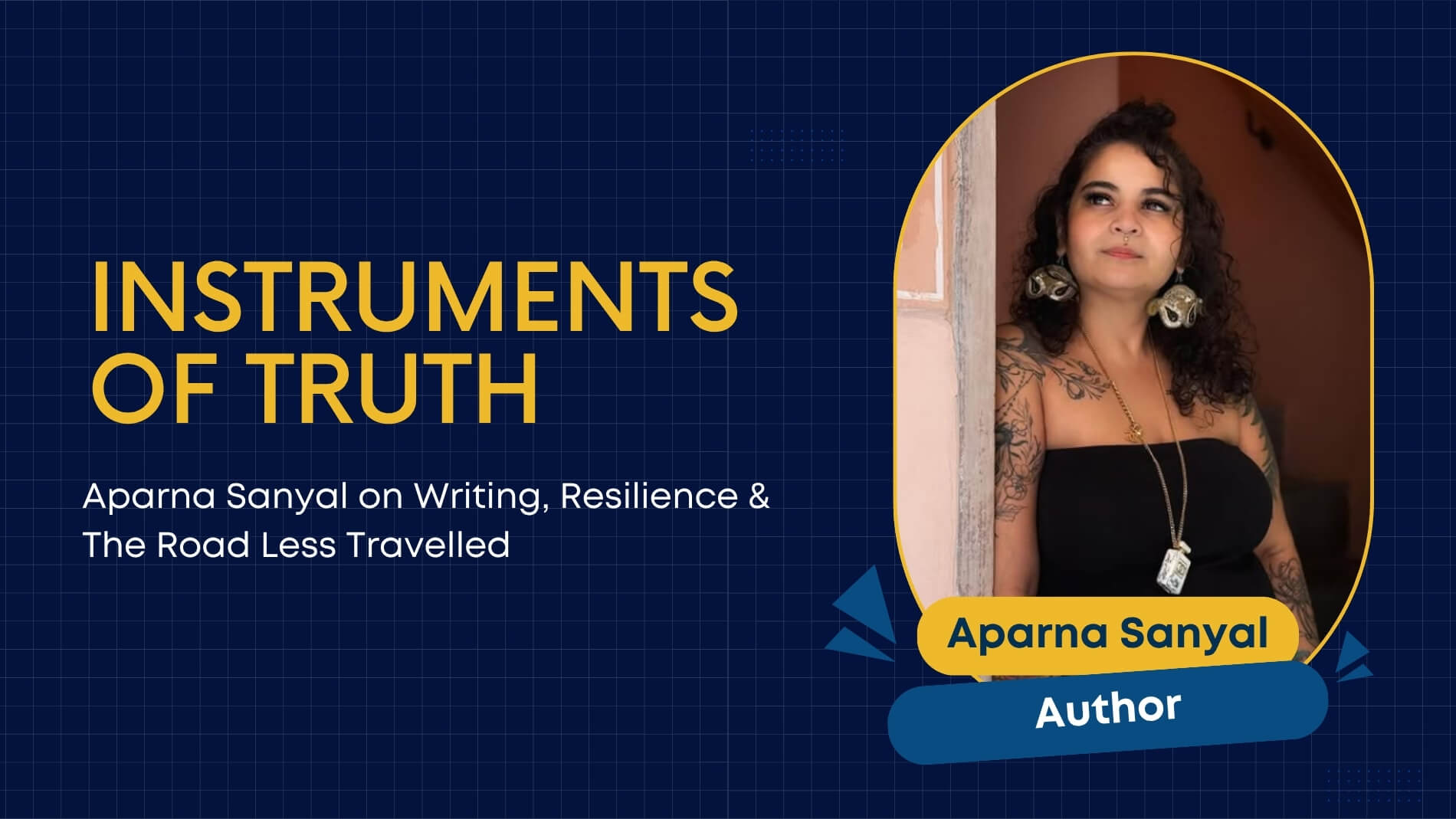
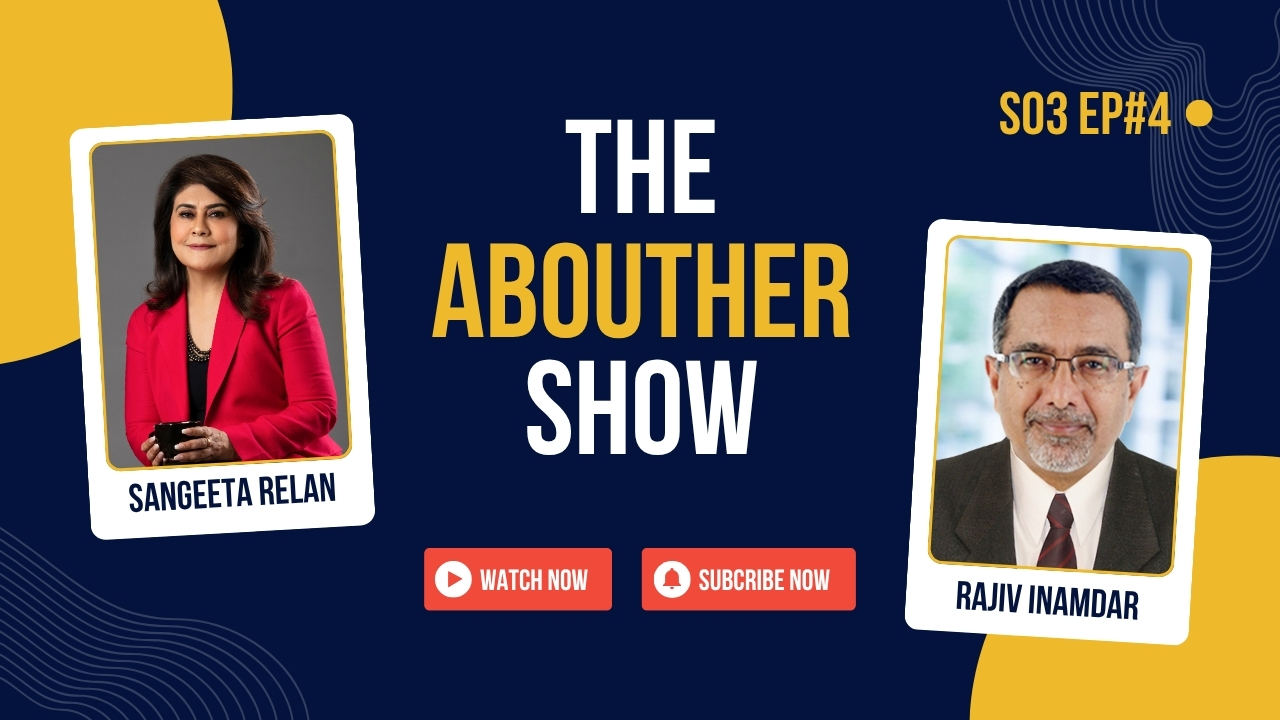
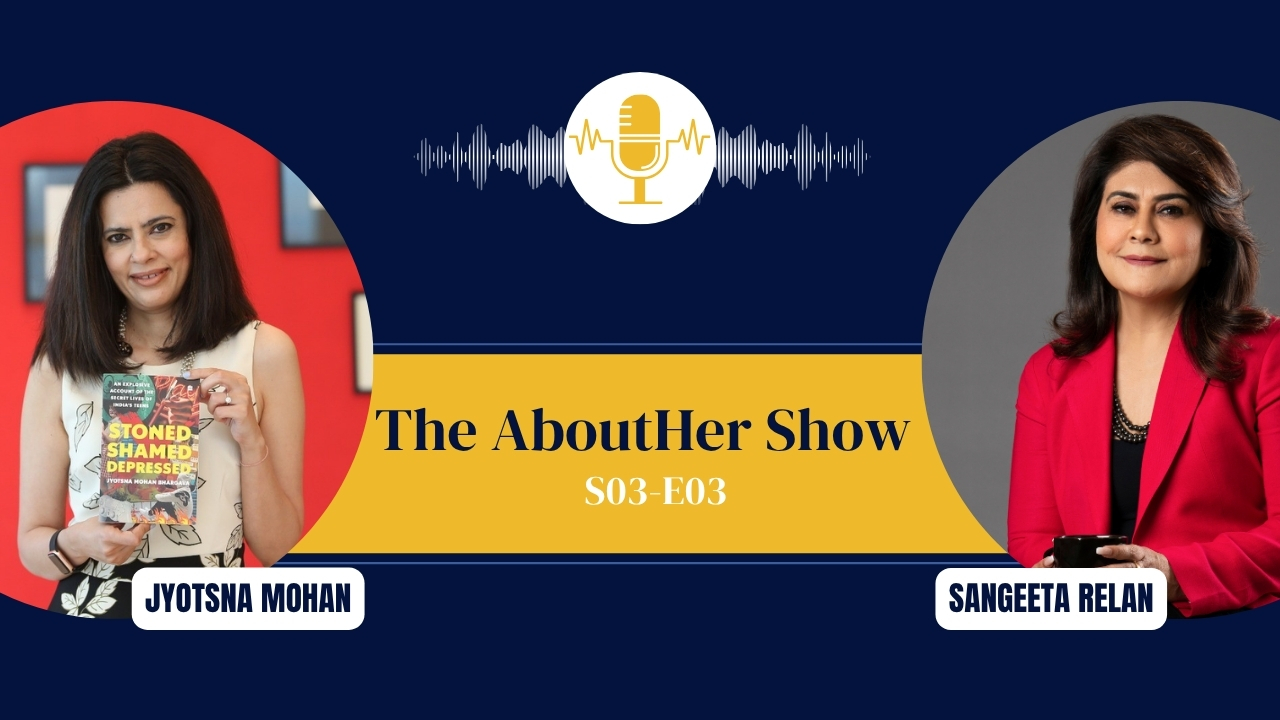
Such a heartfelt piece. We certainly need more men owning their vulnerabilities!